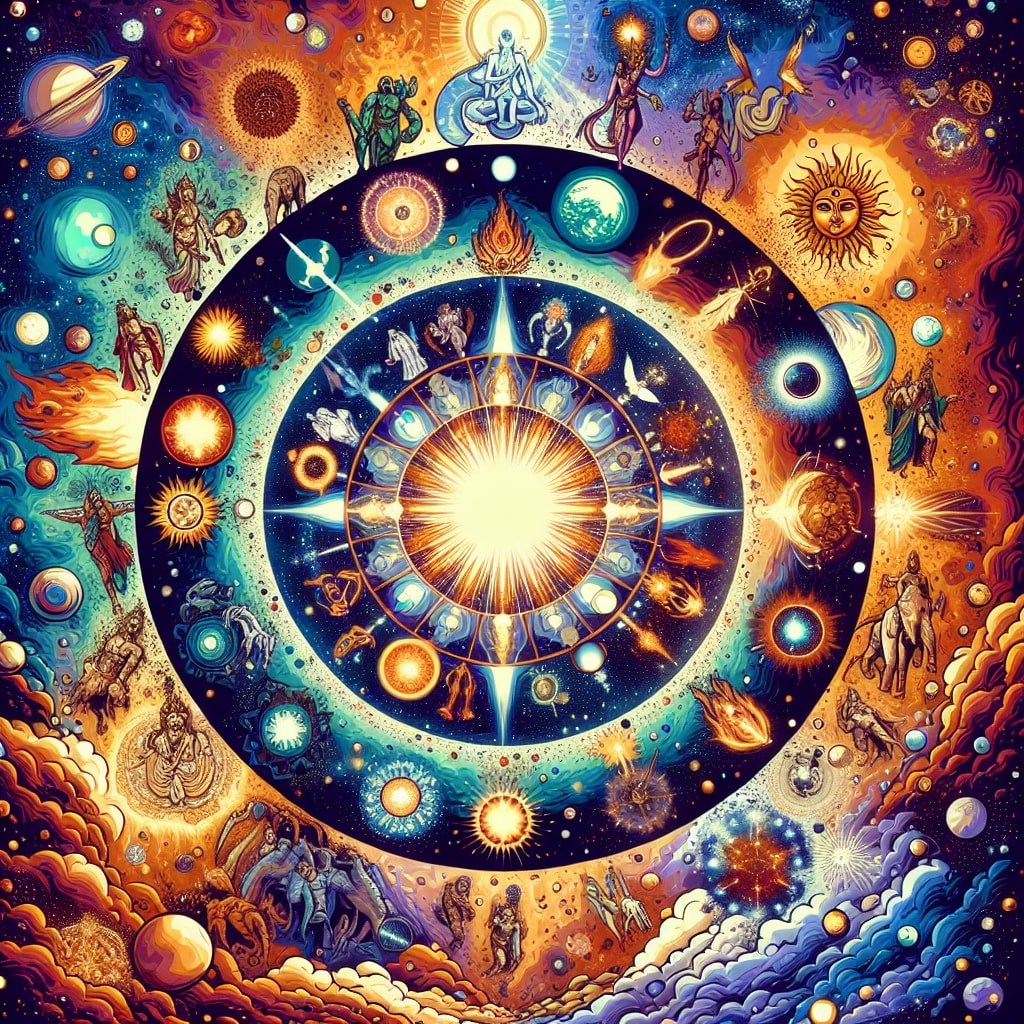Brahman represents the ultimate reality or the absolute, an indescribable, infinite entity that is beyond human understanding. It's often postulated to be beyond temporal and spatial boundaries, escaping conceptualization. It is the unchanging, eternal truth that is both the basis of all existing phenomena and the final reality that transcends the illusion of empirical existence.
In the great Indian epic, Mahabharata, Brahman is frequently alluded to as the ultimate goal of human striving. It's evident from numerous discourses in the text suggesting the way for attaining Moksha (emancipatory release) is through the realization and understanding of Brahman.
The Bhagavad Gita offers more insights into Brahman, depicting it as the absolute truth that pervades all beings and the entirety of the cosmos. Unlike how many other systems interpret God as an external entity, the Gita discusses God (Krishna) as both the cause and the manifestation of the universe, and hence the Brahman. In this sacred document, understanding Brahman is deemed key to attaining spiritual enlightenment and freedom from the cycle of birth, death, and rebirth.
Thus, Brahman, from the perspective of the Mahabharata, Bhagavad Gita, and Sanskrit literature as a whole, signifies the ultimate truth in the universe: indescribable, all-encompassing, one without a second, unaffected by the worldly changes, and the absolute reality underlying all phenomena. Two significant paths to the realization of Brahman in these texts are the paths of selfless action (Karma Yoga) and self-knowledge (Jnana Yoga).

